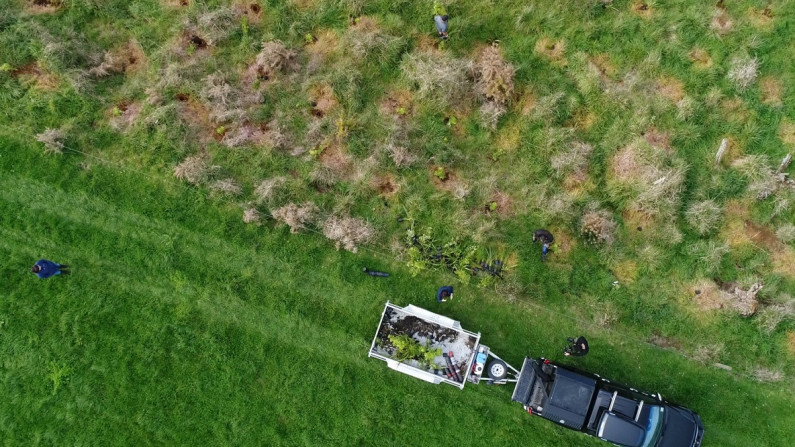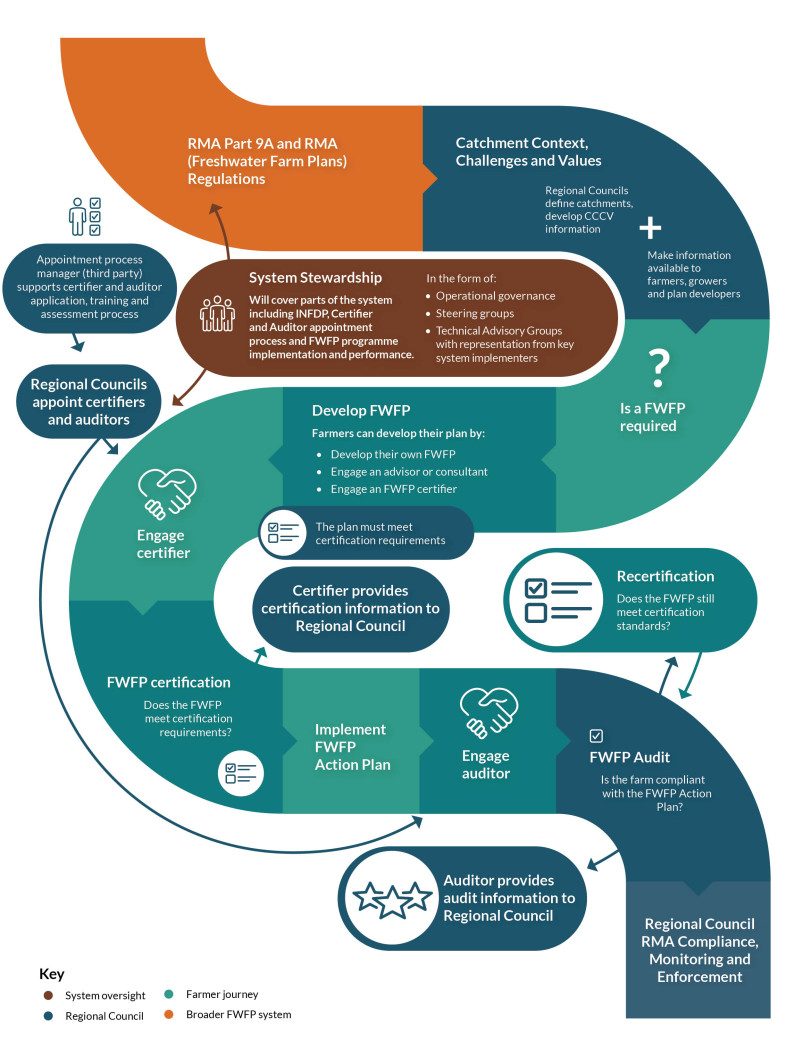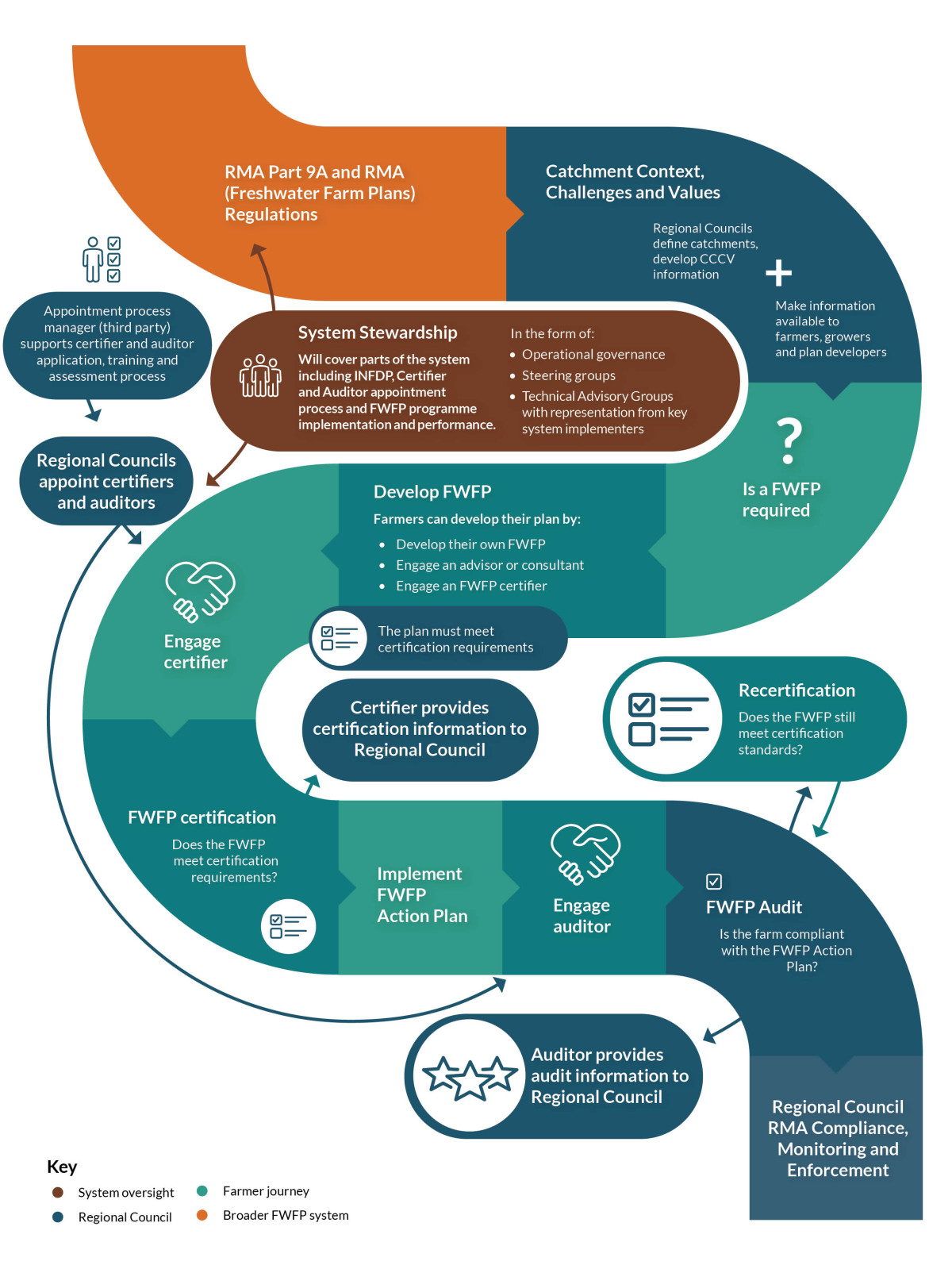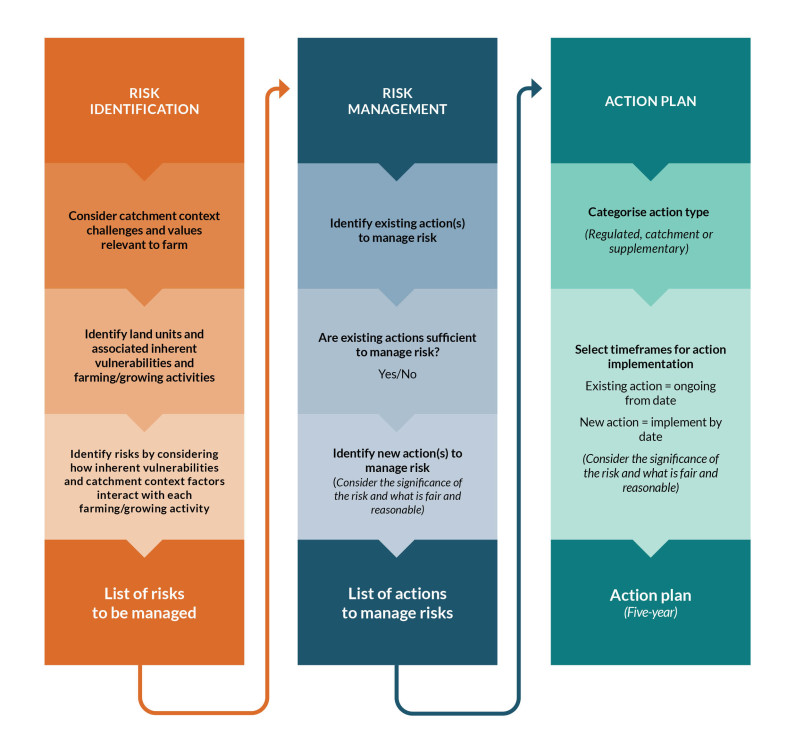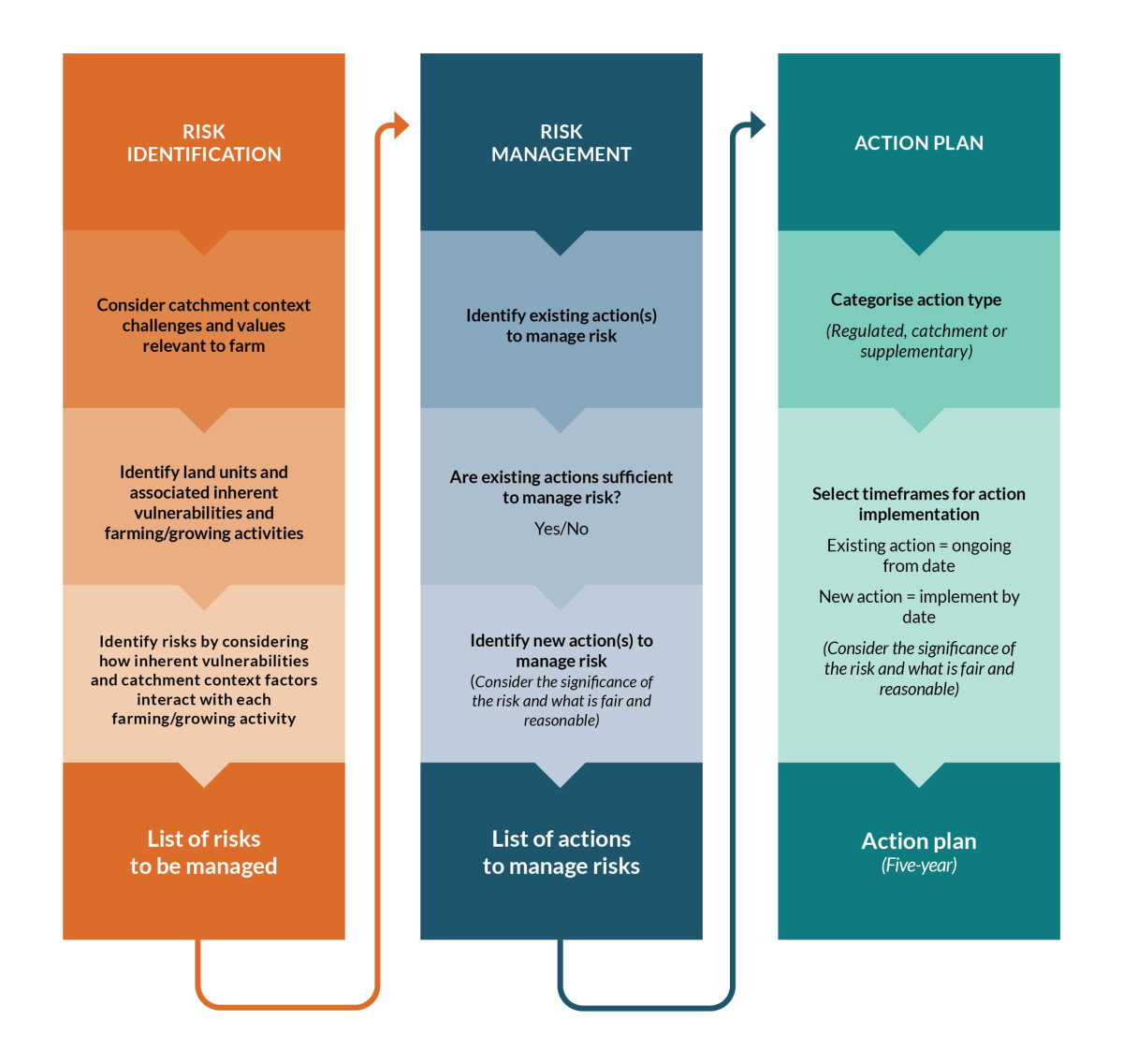Certification
Freshwater farm plans will need to be certified.
Freshwater farm plan certifiers will be appointed by regional councils. Regional councils will make a list of certifiers available. This information is also available on the freshwater farm plan certifier and auditor register.
Farmers must engage a certifier within 18 months of the regulations applying in their area and support them to conduct the certification process.
Once the freshwater farm plan has been certified the certifier will notify the relevant regional council.
Freshwater farm plans will need to be recertified every 5 years.
Audit
Freshwater farm plans will need to be audited within 12 months of the initial certification.
Freshwater farm plan auditors will be appointed by regional councils. Regional councils will make a list of auditors available. This information is also available on the freshwater farm plan certifier and auditor register.
Farmers must arrange for an auditor to audit their farm and support them to conduct the audit.
The auditor will assess whether the farmer is implementing the FWFP as set out in the certified plan.
Once the freshwater farm plan has been audited the auditor will notify the relevant regional council of the audit grade.
The timeframe for the following audit will be determined by the audit grade.
Becoming a freshwater farm plan certifier or auditor
Freshwater farm plan certifiers and auditors may come from a range of backgrounds provided they have the necessary skills and experience (competencies) set out in the regulations.
The appointment process for certifier and auditors will involve:
- an assessment of their experience and qualifications
- training on the freshwater farm plan system at national and regional level
- a practical on-farm assessment (for certifiers only).
The appointment process is run on behalf of Regional Councils by a third-party appointment process manager (AsureQuality). More information on how to apply to become a FW FP certifier or auditor can be found below.
Once an applicant has completed the appointment process, AsureQuality will make an appointment recommendation to the relevant regional council.
